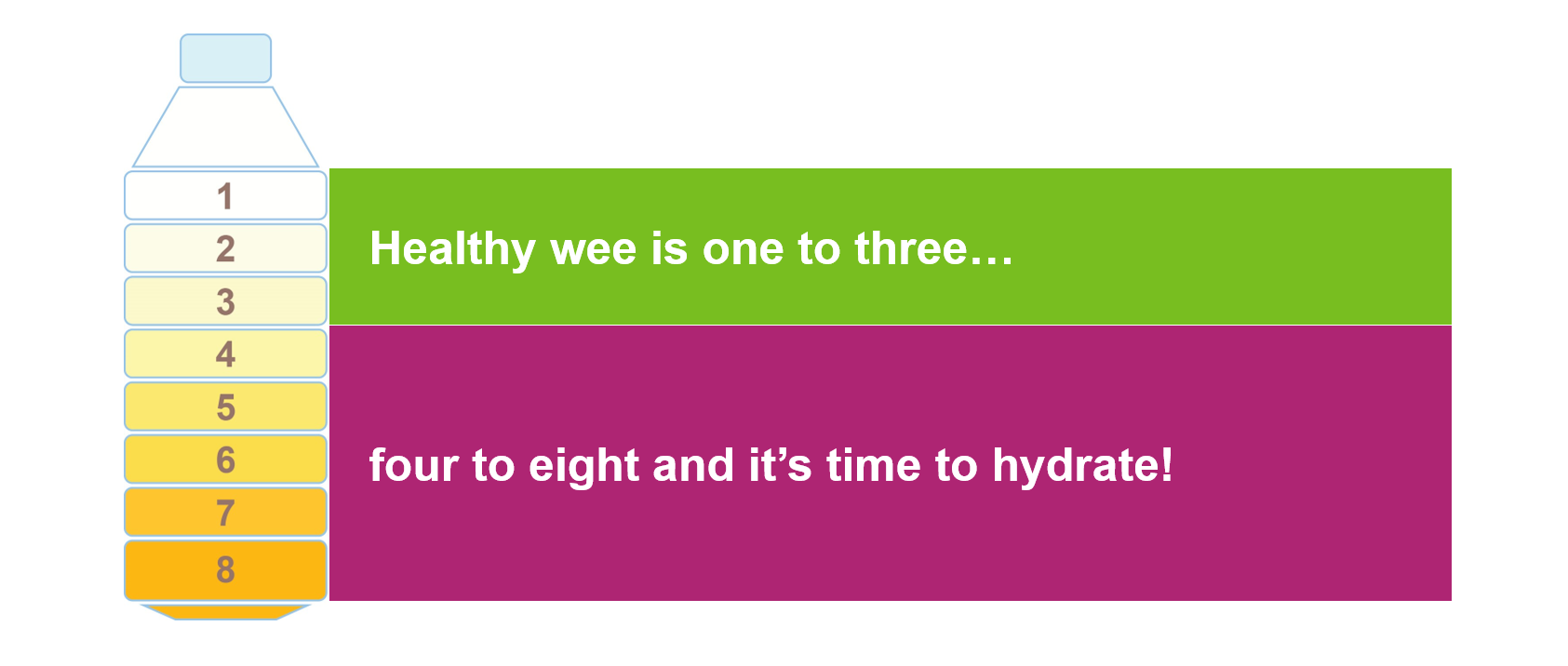Keeping residents hydrated during the hot weather
Last edited: 16/12/2022
Fluid is essential for life, without fluids we would only survive a few days. It plays a critical role in all of our body functions, we all need to replace fluid lost through breathing, sweat and flushing out waste products.
In our usual climate most people need between 1.5 and 2.5litres of fluid daily, which is equivalent to about six to eight glasses. However, extra fluid will be needed when sweating more, for example. through heavy work or exercise or in hot weather. Some people are more susceptible to becoming dehydrated in hot weather. Those include:
- older people – especially those over 75
- people with a serious chronic condition – particularly breathing or heart problems
- people with serious mental health problems
- people with mobility problems
- people on certain medication – check with your resident’s pharmacist or GP for details
- people who already have a high temperature from an infection.
When your residents do not drink adequately they can become dehydrated. This can lead to:
- tiredness
- headaches
- constipation
- nausea
- increased risk of urinary tract infections.
During a heat wave or hot weather, dehydration can also lead to heat exhaustion and heat stroke. This leaflet is designed to help you to manage your residents fluid intake during these periods.
Top tips
- Fluid is not just about water, your residents can also choose other drinks they enjoy. These can include:
- tea
- coffee
- milky drinks
- fizzy drinks
- fruit juice
- squash
- fruit tea.
- Try to encourage a limit on alcoholic drinks as these may promote dehydration.
- Try to encourage your residents to drink at regular intervals throughout the day. If they cannot manage large amounts, try to promote small sips throughout the day instead. Recognise which of your residents may need extra support with this and assist them if required. Ensure a full jug of fluid is kept close and available for your residents to drink and record how much fluid they are managing to drink over the day.
- Fluids found within foods can also help to keep your residents hydrated. These can include:
- ice lollies
- jellies
- yoghurts
- milky puddings
- soups
- stews.
- Some fruits and vegetables, such as melon, tomatoes and cucumber, are also good sources of fluid.
- Don’t rely solely your resident complaining of thirst as a sign that you need to encourage them to drink.
By the time they are thirsty they may already be dehydrated; be aware also that the thirst mechanism is reduced in older age. - Some of your residents may feel uncomfortably warm during a heat wave or hot weather. If this is the case, you could offer them cold drinks with ice and/or a cold meal to help them feel more comfortable. If your residents become unwell during hot weather, encourage them to drink any fluids that they can manage and contact their GP.
- If you have concerns regarding your resident’s food or fluid intake and you feel that they may not be meeting their requirements, contact a dietitian.
- The simplest way to know if your residents are drinking enough is to encourage them to check the colour of their urine. If it is dark yellow they probably need to drink more but pale and straw coloured suggests they are drinking enough. If in doubt, check it compared to our guide below.

Contact us
Please contact the service though our Central Appointments Team:
0300 123 0861
kcht.centralisedappointmentteam@nhs.net
Monday to Friday, 9am to 3pm
This information should only be followed on the advice of a healthcare professional.
Do you have feedback about our health services?
0800 030 4550
Text 07899 903499
Monday to Friday, 8.30am to 4.30pm
kentchft.PALS@nhs.net
kentcht.nhs.uk/PALS
Patient Advice and Liaison Service (PALS)
Kent Community Health NHS Foundation Trust
Trinity House, 110-120 Upper Pemberton
Ashford
Kent
TN25 4AZ
![]()
Donate today, and help the NHS go above and beyond. Visit kentcht.nhs.uk/icare
If you need communication support or this information in another format, please ask a member of staff or contact us using the details above.
